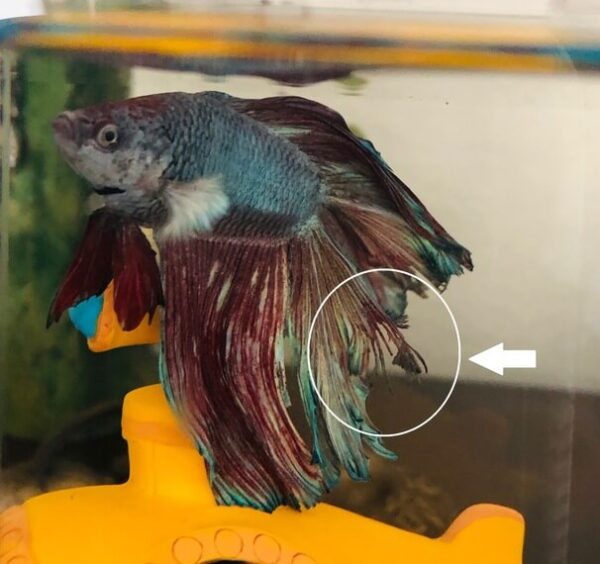
Photo Courtesy of: Wikimedia Commons
Betta fish, also known as Siamese fighting fish, are beautiful, colorful creatures that are popular pets. However, just like any other living organism, bettas are susceptible to various diseases. It is essential for pet owners to be aware of the symptoms and treatments of common betta fish diseases to ensure their pets stay healthy and happy.
Fin Rot
Fin Rot is a bacterial infection that affects the fins of betta fish. Symptoms include ragged, frayed fins and tail, discoloration, and loss of appetite. The best way to prevent Fin Rot is to keep the water clean and maintain proper pH levels. Treatment includes antibiotics and improvingwater conditions.

Photo Courtesy of: Wikimedia Commons
Swim Bladder Disease
Swim Bladder Disease affects the swim bladder, a vital organ that helps the fish maintain buoyancy. Symptoms include the inability to swim properly, swimming upside down or sideways, and loss of appetite. Treatment includes fasting for a few days, feeding the fish with peas, and improving water conditions.
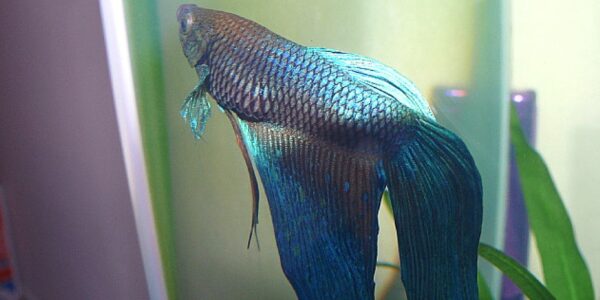
Photo Courtesy of: Pinterest
Dropsy
Dropsy is a bacterial infection that affects the kidneys and causes fluid buildup in the fish's body. Symptoms include bloating, pinecone-like appearance, and lethargy. Treatment includes antibiotics and improving water conditions.
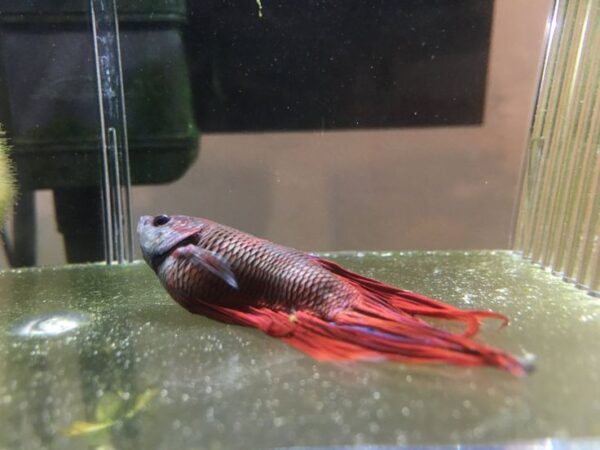
Photo Courtesy of: Pinterest
Velvet
Velvet is a parasitic infection that appears as a yellow or brownish-gold dust on the fish's skin. Symptoms include lethargy, loss of appetite, and scratching against objects in the tank. Treatment includes medications specifically designed to kill parasites and improving water conditions.
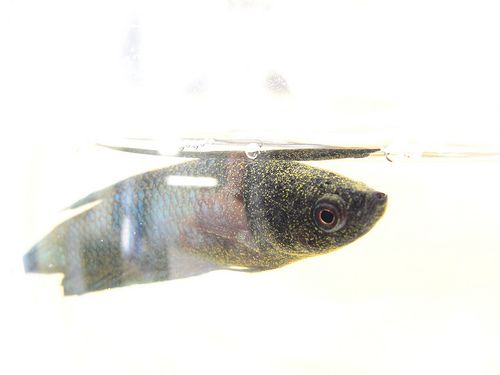
Photo Courtesy of: Pinterest
Ich
Ich is another parasitic infection that appears as white spots on the fish's skin and fins. Symptoms include lethargy, loss of appetite, and scratching against objects in the tank. Treatment includes medications specifically designed to kill parasites and improving water conditions.
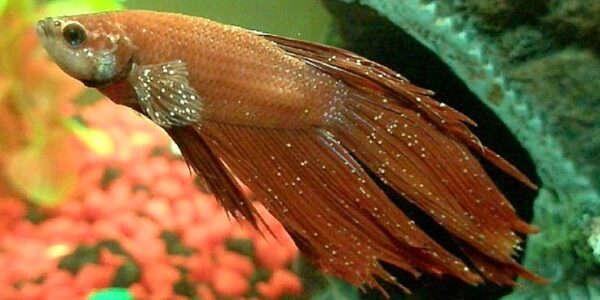
Photo Courtesy of: Pinterest
Columnaris
Columnaris is a bacterial infection that affects the skin and fins of betta fish. Symptoms include whitish-gray lesions, frayed fins, and loss of appetite. Treatment includes antibiotics and improving water conditions.
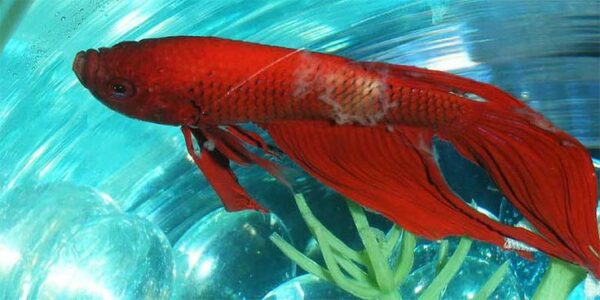
Photo Courtesy of: Pinterest
Mouth Fungus
Mouth Fungus is a fungal infection that affects the mouth and lips of betta fish. Symptoms include white, cotton-like growths around the mouth and lethargy. Treatment includes antifungal medications and improving water conditions.
Popeye
Popeye is a bacterial infection that affects the eyes of betta fish. Symptoms include bulging eyes and cloudy eyes. Treatment includes antibiotics and improving water conditions.
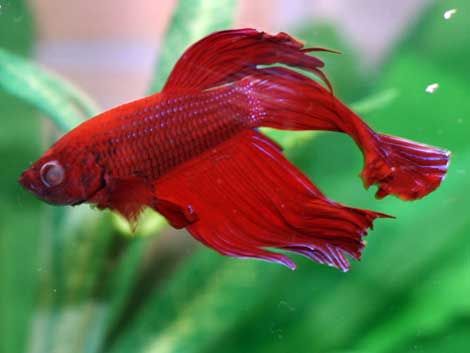
Photo Courtesy of: Pinterest
Prevention
Prevention is always better than cure. Maintaining a clean and well-filtered tank, avoiding overfeeding, and avoiding overcrowding can help prevent many betta fish diseases. It is also important to quarantine new fish before adding them to the tank to prevent the spread of disease.
Conclusion
Betta fish are beautiful and fascinating creatures that require proper care and attention to stay healthy. Knowing the signs and symptoms of common betta fish diseases and how to treat them can help ensure that your pet stays happy and healthy. As a pet owner, it is your responsibility to provide the best possible care for your betta fish.
